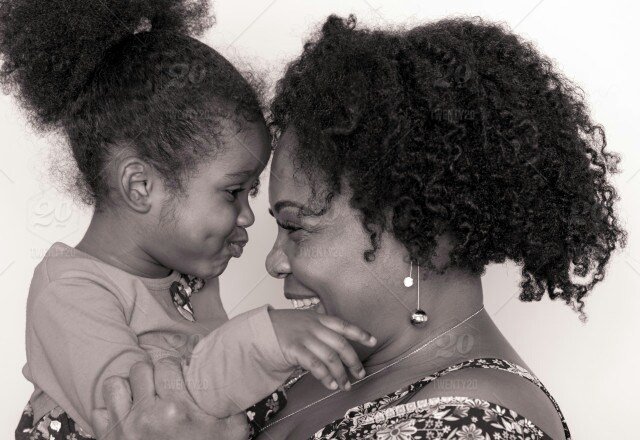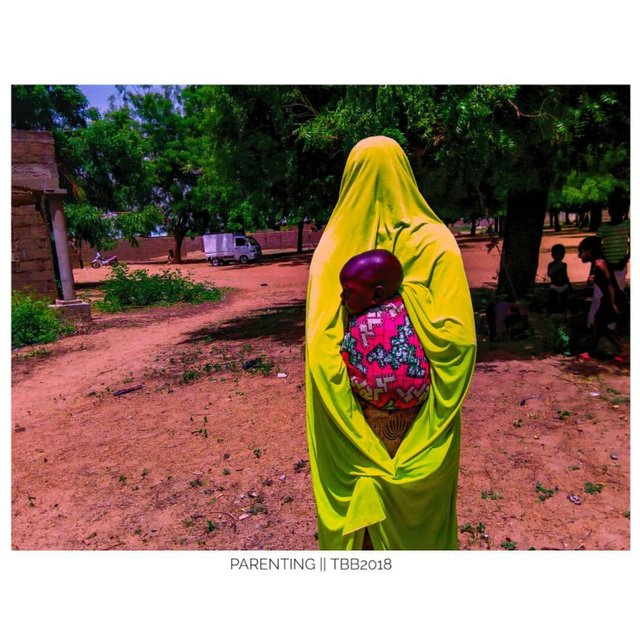
Caring for children and helping them grow and develop can be a very complicated job. Parenting may be the most difficult, important and as well rewarding task in the life of an adult. Yet dealing with the everyday pressures of family life is a constant challenge. In recent times, parents have come to inquire how to stay present and calm amidst the chaos of child upbringing. How can parents be more mindful when raising their children?
Parenting, just like every other job involves skills. It involves a set rules and principles that differs in operation based on the personality of a child. These skills changes as the children get older and parents must adapt their parenting skills to each stage of their children’s development.
Bonding

I consider the parent-child bonding as the most important part of child upbringing. This is where most parents fail, and where the foundation is bad, the building can’t hold for long. For sometime it became a standing tradition of African parents putting up belligerent acts to discipline children. The idea is to instill a lasting fear in the life of the child, making her respond to every command given. In most cases, these children who live on daily whims and caprices tend to develop psychological misconducts. They develop hate, mistrust and fear which is terrible for a parent-child relationship situation.
Train Up A Child

One other strategy employed in African homes, which over time has proven effective is embedding a set of rules and instructions in a child at a tender age. An age when all the child knows is “mom and dad”. This is the stage when the child is totally empty and so eager to learn new things. And because of the eagerness, it is easy for her to capture information in her mind and hold it for a very considerable long period; even for life. Therefore, it is advisable to take advantage of a child’s vulnerability to learn while small.
But the journey only begins then. What matters most in a child’s development, they say, is not how much information is stuffed into her brain in the first few years. What really matters, is whether a parent is able to help her develop a very different set of qualities, a list that includes persistent, self-control, curiosity, conscientiousness, grit and self confidence, love, respect just to mention a few.
Decision Making

Another important part in child upbringing is decision making. This stage comes way later in life (mostly teen age), after a child might have been instilled certain values and strong beliefs. Teenagers tend to be influenced by peer pressure and friends action, dragging them in making certain decisions that could change their lives, either positively or negatively. Parents have a vital role to play here as they must invest eagle eyes on the kids to put them back on track each time they derail.
It is expedient to note that as a parent, you must look out for causes or campaigns that you think may capture the interest of your children and must come up with ways to support that cause. There are times when parents need to know when to help and when to let children try a task on their own- even if it means they will fail. Children will have to learn how to bounce back after setbacks and try again.
Furthermore, It’s not just parents who need parenting skills. Anyone who lives or works with children can benefit from knowing parenting. By learning about these skills and how to apply them, people who interact with children have a positive influence on them.

Since the complexity of raising a child got up the ranks, parenting demands good judgement, understanding a child’s needs and ensuring those needs are met. Children they say are the future of tomorrow. Parents and guardians indeed have a major role to play in securing not just a future for them, but a bright and sustainable one.
Hi! I am a robot. I just upvoted you! I found similar content that readers might be interested in:
http://thedarksons.com/helping-kids-grow/
Downvoting a post can decrease pending rewards and make it less visible. Common reasons:
Submit